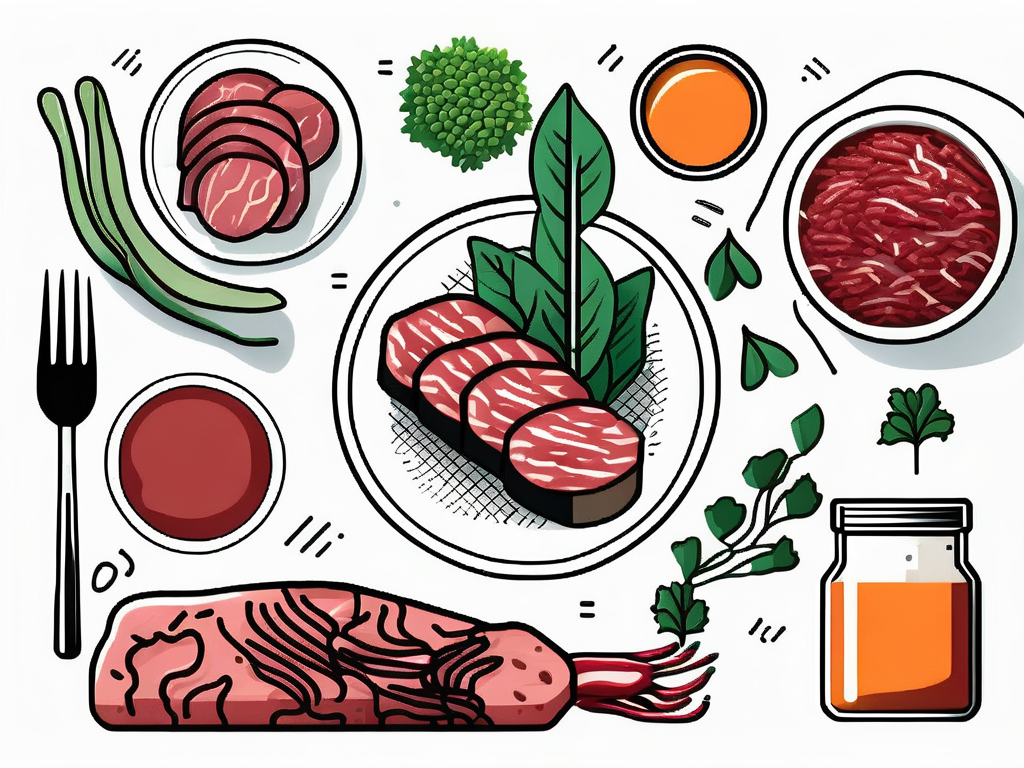Plant-based meat alternatives have gained popularity in recent years, offering a cruelty-free and environmentally friendly option for those seeking to reduce their consumption of animal products. However, while these alternatives have their merits, it is important to also consider their downsides. In this article, we will explore the top 10 disadvantages of plant-based meat breakfast sausage links.
Texture
One of the main drawbacks of plant-based meat breakfast sausage links is their texture. While manufacturers strive to replicate the texture of traditional meat, plant-based alternatives often fall short. The texture of these sausage links can be described as slightly rubbery or chewy, lacking the juiciness and tenderness found in real meat.
Furthermore, the texture can vary between brands and even between batches, making it difficult to consistently achieve the desired texture. This inconsistency can be off-putting for those who are accustomed to the familiar texture of traditional meat sausage links.
Taste
Another disadvantage of plant-based meat breakfast sausage links is their taste. While manufacturers have made significant advancements in replicating the flavors of meat, some consumers find that the taste of these alternatives falls short of their expectations.
The taste of plant-based sausage links can be described as slightly bland or lacking the depth and complexity of flavors found in real meat. Despite efforts to enhance the taste with various seasonings and spices, it can be challenging to achieve the same level of satisfaction as with traditional meat sausage links.
Nutritional Value
When it comes to nutritional value, plant-based meat breakfast sausage links may not be as beneficial as they seem. While they are often marketed as a healthier alternative to traditional meat, it is important to scrutinize their nutritional content.
Plant-based sausage links can be high in sodium and saturated fat, which can have negative implications for cardiovascular health. Additionally, they may lack essential nutrients such as vitamin B12, iron, and omega-3 fatty acids that are naturally present in animal-based sausages.
It is crucial for individuals relying on plant-based meat alternatives to ensure they are obtaining a well-rounded and balanced diet to meet their nutritional needs.
Processing Methods
The processing methods used in the production of plant-based meat breakfast sausage links can also be a cause for concern. These alternatives often undergo extensive processing to achieve the desired texture and taste.

Some processing methods involve the use of additives, preservatives, and artificial flavors to enhance the overall product. While these additives are generally recognized as safe, some individuals may prefer to avoid them due to personal preferences or dietary restrictions.
Furthermore, the extensive processing involved in creating plant-based sausage links may result in a product that is less natural and more heavily processed than traditional meat sausage links.
Allergen Concerns
Individuals with food allergies or sensitivities may face challenges when consuming plant-based meat breakfast sausage links. While these alternatives are typically free from common allergens such as dairy, eggs, and soy, they may contain other ingredients that can trigger allergic reactions.

It is important for individuals with allergies to carefully read the ingredient labels of plant-based sausage links to ensure they do not contain any allergens that could potentially cause harm.
Price
Plant-based meat breakfast sausage links can be more expensive than their traditional meat counterparts. The cost of producing plant-based alternatives, which often involve sourcing high-quality plant proteins and utilizing advanced manufacturing techniques, can contribute to their higher price point.
While the price of plant-based sausage links may vary depending on the brand and location, they are generally more expensive than traditional meat sausage links. This higher cost can be a deterrent for individuals on a tight budget or those who prioritize affordability in their food choices.
Availability
Although plant-based meat alternatives have become increasingly popular, their availability may still be limited in certain areas. While major supermarkets and health food stores are more likely to stock these products, individuals living in rural or remote areas may have difficulty finding plant-based sausage links.

This limited availability can be frustrating for those who rely on these alternatives for their dietary preferences or ethical reasons. It is important for manufacturers to continue expanding their distribution networks to ensure wider accessibility for consumers.
Environmental Impact
While plant-based meat alternatives are often touted as a more environmentally friendly option, they are not without their own environmental impact. The production of plant-based sausage links still requires resources such as land, water, and energy.
Additionally, the cultivation of crops for plant-based alternatives can contribute to deforestation, habitat destruction, and pesticide use. While the environmental impact may be lower compared to traditional meat production, it is important to consider the overall sustainability of plant-based alternatives.
Sodium Content
Plant-based meat breakfast sausage links can be high in sodium, which can be a concern for individuals with hypertension or those aiming to reduce their sodium intake. The sodium content in these alternatives is often used to enhance flavor and preserve the product.
Consumers should be mindful of their sodium intake and consider the sodium content of plant-based sausage links when incorporating them into their diet. Opting for lower sodium alternatives or consuming them in moderation can help mitigate this disadvantage.
Cooking Methods
Plant-based meat breakfast sausage links may require different cooking methods compared to traditional meat sausage links. Due to their composition and texture, plant-based alternatives may not respond to cooking techniques in the same way.
It may take some trial and error to achieve the desired texture and taste when cooking plant-based sausage links. This learning curve can be frustrating for individuals who are accustomed to cooking traditional meat sausage links and may deter them from fully embracing plant-based alternatives.
Conclusion
While plant-based meat breakfast sausage links offer a promising alternative for those seeking to reduce their consumption of animal products, it is important to consider the downsides. From texture and taste to nutritional value and processing methods, each aspect has its own set of disadvantages.
Individuals should weigh these disadvantages against their personal preferences, dietary needs, and ethical considerations when deciding whether to incorporate plant-based sausage links into their diet. As with any food choice, it is essential to make informed decisions that align with one's values and overall well-being.




